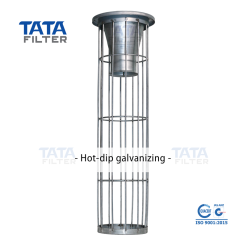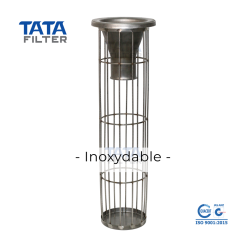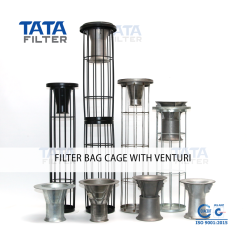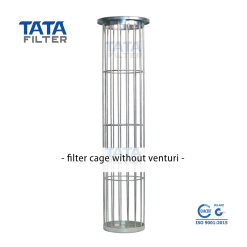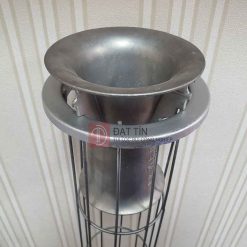FILTER BAG CAGE
TAN THANH specializes in industrial-scale production of various types of Dust Filter Bag Cages (frames, pocket filter cages), with automated processes for straightening, bending, cutting, and welding.
Production capacity
TAN THANH can fulfill orders ranging from 3000 to 4000 pcs/month with cage lengths from 3 to 6 meters. Typically, for 3-meter types, the maximum quantity produced is up to 200 cages per day.
Types of Cages:
Stainless Steel cages
Electrostatic Powder Coating cages
Electroplated cages
Hot-dip galvanizing cages
Joint cages
Split Collar cages
Threaded collar top cages
Two-tier cages
Cage accessories: venturi, joint…
Mechanical Processing Methods:
Spot welding (electrode welding) ensures strong and aesthetically pleasing welds, minimizing weld spatter (bavia) that could tear the bags.
Precise processing helps create vertical cages, keeping the dust filter bags perpendicular to the floor, avoiding collisions between the bags.
Depending on the specific dust collection environment, different materials and structures can be selected.
For dust collection systems with height limitations, two-piece joint cages can be chosen.
The number of vertical wires used depends on the filter material. For example, PE500 and Nomex 500 filter materials typically use 10 vertical bars. For materials with lower cohesion like fiberglass and PTFE, cages with 12-16 vertical bars are used. More vertical bars help make the filter bags more durable by reducing impact forces during dust shaking and minimizing material bending.
In environments requiring enhanced chemical resistance (such as acids, bases, etc.), in addition to stainless steel cages, Tan Thanh also processes dry powder coating for black steel or galvanized steel cages to prevent corrosion and rust.
Storage and Delivery:
Tan Thanh provides packaging, transportation, and storage services. For large orders, they ensure that the cages are delivered to customers with minimal warping and damage. The cages can be packed in iron crates, strapped, or stored in plastic bags (for marine environments prone to saltwater corrosion).
The cages can be packed in iron crates, strapped, or stored in plastic bags (for environments prone to saltwater corrosion).

